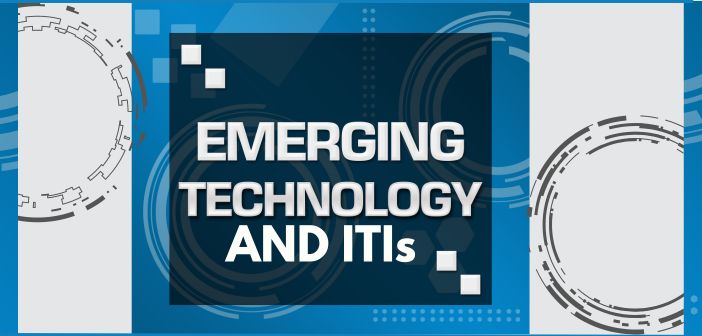
In recent years, the technical training and educational landscape has witnessed a significant shift towards embracing emerging technologies. This shift is particularly evident in Industrial Training Institutes (ITIs) across various states, where courses in Robotics, Drones, Electronics, Mechatronics, AI and other cutting-edge technologies are being introduced. This proactive approach not only addresses the pressing need for skilled professionals in emerging sectors but also aims to transform the perception of ITI courses as contemporary, demand-driven and industry-relevant.
Guest author – Nikhil Kela, Business Development Manager, Scientech Technologies Pvt. Ltd.
In this comprehensive article, we explore the necessity of introducing courses in emerging technologies within ITIs and outline strategies to optimize the effectiveness of such programs.
Enhancing employability through emerging tech courses in ITIs
The introduction of courses in emerging technologies within ITIs signifies a proactive response to the evolving needs of the industry. With sectors like Robotics, AI and Green Energy witnessing rapid growth, there is a heightened demand for skilled professionals proficient in these domains. By offering training in these cutting-edge technologies, ITIs can bridge the gap between industry requirements and the skill set of prospective employees. This not only enhances the employability of ITI graduates but also bolsters the reputation of ITI courses as contemporary and industry-relevant.
Designing multi-disciplinary courses in ITIs
A crucial aspect of ensuring the efficacy of courses in emerging technologies within ITIs is the design of a multi-skilled curriculum. Traditional approaches focused on singular disciplines are no longer sufficient to meet the demands of the evolving job market. Instead, ITIs must adopt an interdisciplinary approach that incorporates elements from various related industry sectors. For instance, courses in drones should encompass aspects of Electronics, Information Technology (IT), Aviation and more. This holistic approach not only broadens the skill set of students but also equips them with a comprehensive understanding essential for thriving in the dynamic technological landscape.

Ensuring in-depth learning through long-term courses
Short-term courses can provide a basic high-level understanding of complex concepts. However, to help students understand complex technologies effectively, long-term courses prove to be extremely beneficial. To cater adequately to industry needs and facilitate comprehensive skill development, ITIs must offer long-term courses in emerging technologies. These extended programs ensure that students receive in-depth training, allowing them to acquire a profound understanding of the technology and its applications. Moreover, long-term courses align with the government’s vision of promoting upgradable skills, thereby enhancing the long-term employability of ITI graduates.
Facilitating faculty training to bridge the skill/knowledge gap
The effectiveness of courses in emerging technologies within ITIs is intrinsically linked to the proficiency of the faculty members delivering the curriculum. Hence, it is imperative to invest in the training and upskilling of faculty members to ensure they possess the requisite expertise in related technologies. Collaborative efforts between industry stakeholders and educational institutions can facilitate specialized training programs for faculty members, enabling them to stay abreast of the latest advancements and industry practices. Moreover, initiatives aimed at nurturing a pool of skilled trainers can significantly enhance the quality of instruction imparted to students.
Building a robust skilling ecosystem to foster sustainable growth
While the introduction of courses in emerging technologies within ITIs holds immense potential, several challenges must be addressed to foster sustainable growth. These challenges encompass the establishment of state-of-the-art infrastructure, alignment of courses with industry standards for certification and the cultivation of a skilled workforce capable of delivering high-quality instruction. To surmount these obstacles, concerted efforts from policymakers, educational institutions and industry stakeholders are imperative. By fostering collaborations, leveraging technology-enabled learning platforms and prioritizing faculty development, ITIs can surmount challenges and emerge as key contributors to India’s skilling ecosystem.
Incorporating emerging technology courses within ITIs signifies a critical step towards aligning technical education with the ever-evolving industrial landscape. By implementing the strategies outlined – from multi-disciplinary curriculums and long-term programs to faculty training and robust skilling ecosystems – ITIs can empower students with the necessary skillsets to flourish in the digital age.
Also read: Bridging the Skills Gap in Electronics Industry through Innovative Training
Looking ahead, fostering stronger collaborations between academia and industry is paramount. By leveraging this synergy, ITIs can not only stay abreast of the latest advancements but also cultivate a culture of innovation and entrepreneurship. This collaborative approach positions ITIs to play a pivotal role in propelling India’s workforce towards the forefront of emerging technologies, ensuring a skilled and adaptable talent pool ready to navigate the opportunities and challenges of the future.












